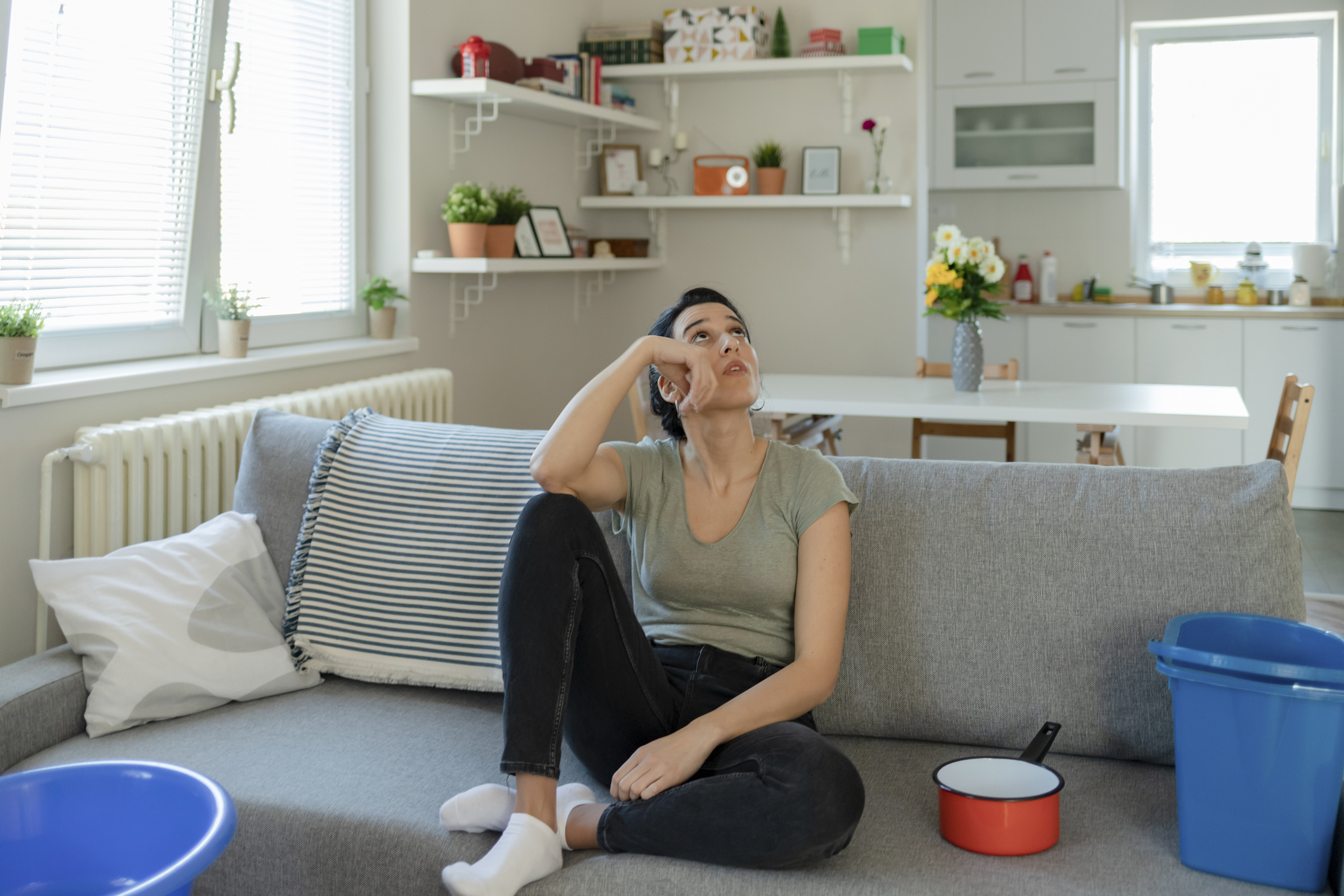The impact of water damage can be enduring and devastating. It stealthily creates havoc within homes until its presence is detected, resulting in extensive damage that requires immediate property restoration. When confronted with water damage, a swift and effective response becomes paramount in minimizing overall damage and preventing further deterioration of the property.
Within 24-48 hours of water damage, mold can begin to grow, as noted by the Federal Emergency Management Agency (FEMA). To equip you with essential knowledge for preventing or mitigating the severe consequences of water damage incidents, this blog post will delve into the seven most prevalent causes of water damage in homes, offering valuable prevention tips along the way.
Leaking Pipes
Any sudden temperature drops, unexpected pressure changes, or simple wear and tear can all cause pipes to leak or burst, often requiring extensive property restoration.
Prevention Tips: By having regular inspections of your pipes, you will be able to spot the early signs of deterioration. If you have a sudden surge in your water bill, this might be an indication of a hidden leak. Don’t hesitate to enlist professional help for those hard to reach places.
Damaged Appliances
As appliances get older, their pipes may start to rust, and hoses can weaken. Everyday household machines like washing machines, dishwashers, water heaters, and refrigerators might unexpectedly lead to damage from leaks or burst pipes.
Prevention Tips: Make it a habit to regularly check these appliances and replace any worn-out parts. Consider installing a leak detection system that automatically turns off the water supply when it detects a leak to prevent significant damage.
Clogged Drains
A blocked drain can escalate from a minor inconvenience to a significant issue swiftly. Overflows, whether originating from a clogged sink or toilet, not only cause a mess but can also result in substantial damage if not promptly addressed. The water can permeate floors, walls, and cabinets, creating an optimal environment for mold growth and potentially causing lasting structural damage if left unnoticed or not adequately dried.
Prevention Tips: Having routine maintenance is essential when it comes to avoiding damage caused by a clogged drain. It can be as simple has regularly using drain cleaner to help keep your pipes clear, or even scheduling a professional drain cleaning service to get a more thorough cleanout, as well as identifying any potential issues before they escalate.
Faulty HVAC Systems
Faulty HVAC systems, often disregarded until a breakdown occurs, can surprisingly contribute to water damage. Inadequate cleaning and maintenance of HVAC systems can lead to the accumulation of condensation, resulting in leaks that damage your property. The cooling process in HVAC units generates significant condensation that requires proper drainage. If the drain line becomes blocked or damaged, water can back up and overflow into unintended areas, causing harm to both your system and your home.
Prevention Tips: Schedule regular HVAC checks and ensure the drain lines are clear of any blockage to help prevent any of these issues.
Roof Damage
A roof in disrepair becomes vulnerable to water infiltration, particularly during periods of intense rain or snowfall. A compromised roofing structure may permit moisture to seep in, resulting in harm to ceilings, walls, and insulation. Prolonged exposure to water can contribute to structural damage, the growth of mold, and the escalation of underlying structural issues over time.
Prevention Tips: Regularly inspect your roof and gutters, looking for any loose or missing shingles, signs of water, or other damage.
**Note: There are several ways you can inspect your roof without climbing on top of it! If you are concerned about a particular area that would require climbing onto your roof, or if you want to do a more thorough roof inspection, you should always contact a qualified roofing contractor.
Sewage Backups
Sewage backups bring about a significant and perilous concern for homeowners. Beyond the distressing mess they create, these incidents pose health hazards due to the presence of bacteria and pathogens in wastewater. Designated as a “category 3” water loss due to the contaminants and potential risks of illness or harm upon exposure, sewage backups necessitate additional precautions and remediation measures in the cleanup process. In addition to the standard property restoration steps required for “cleaner” causes of water damage, special attention is crucial to handle the aftermath of sewage backups properly.
Severe Weather & Natural Disasters
One of the more common causes of water damage is severe weather and natural disasters. While you can’t prevent natural disasters, you can try to be prepared for them.
Prevention Tips: Enhance your peace of mind by installing flood sensors, especially if you reside in an area prone to flooding. Take a friendly approach to flood prevention by routinely checking your measures to ensure they’re in top-notch working condition. If your basement is susceptible to water accumulation during storms, think about investing in a sump pump or another effective drain system. Keep your belongings raised off the floor for added protection. Also, maintain the clear flow of gutters and outdoor drains to safeguard your space.
Despite your best efforts at preventing water damage from impacting your home, sometimes, it’s just inevitable. Appliances can leak, plumbing can fail, and severe weather can strike – all of these factors are simply out of our control. Unfortunately, no matter where you live or what you do, there will always be a risk of water damage.
Ultimately, the key to successfully navigating water-involved damage lies in rapid response and efficient restoration, as this will minimize the overall impact of the loss and help you to start restoring both your home and your peace of mind as soon as possible. This means being prepared for the unexpected by knowing how to shut off your home’s water supply in the event of a burst pipe or severe leak, having the contact information of a reliable property restoration company like 1-800 WATER DAMAGE of NE Sacramento-Folsom handy, and maintaining an up to date home inventory for insurance purposes.
Keep in mind that water damage is progressive – the longer it’s left untreated, the more damage it will cause. If you find any signs of water damage or experience any of these common causes of water damage, give us a call at (916) 706-2722.



